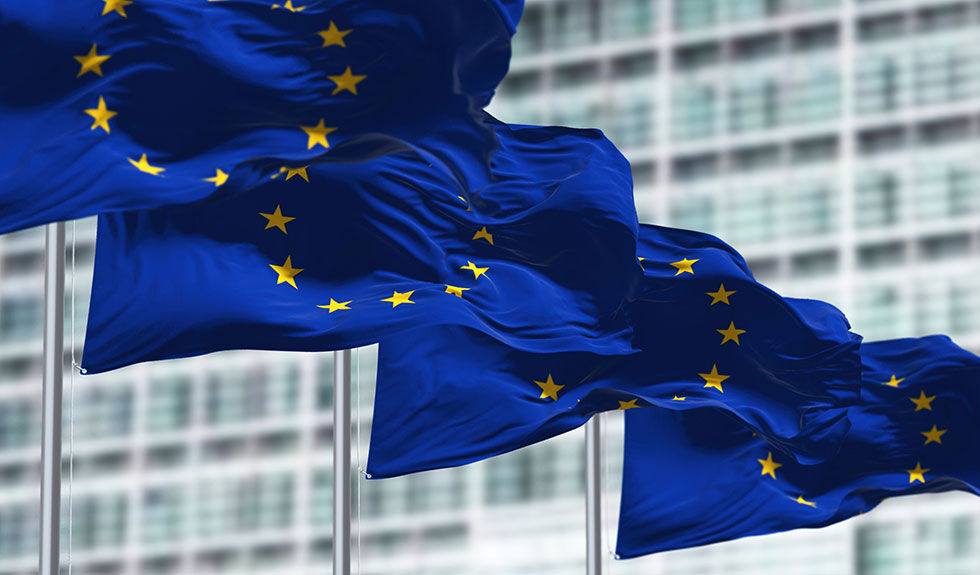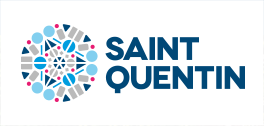-
 PORTAIL CITOYENMes démarches concernent :
PORTAIL CITOYENMes démarches concernent :
- la restauration scolaire
- les activités périscolaires
- les centres sociaux
- la bibliothèque
- la crèche -
MON SAINT-QUENTINPour effectuer et suivre l'état de mes démarches en lignes concernant :
- l'occupation du domaine public
- Allo mairiePour sélectionner mes favoriset personnaliser votre page en toute simplicité -
Mon Saint-QuentinSe connecter sur Mon Saint-QuentinJ'ai oublié mon mot de passe
J'ai oublié mon mot de passe
Veuillez saisir votre adresse e-mail
Mon Saint-QuentinPas encore inscrit ?
Créer un compte maintenant
- Accueil >
- Action municipale >
- Europe is involved in Saint-Quentin

Europe is involved in Saint-Quentin
Investing in the European scene contributes to implementing a strategy to enhance the attractiveness of our region and its influence abroad. This strategy is the result of a partnership approach between the sectors of economic development, sustainable development, tourism, culture, communication, urban planning, and youth.
URBACT
It's an European program that supports cities in developing sustainable and innovative solutions to their urban challenges. It allows municipalities to share their experiences with other European cities, experiment with new approaches, and strengthen citizen participation. Thanks to URBACT, our municipality is committed to a collaborative approach to improve the local quality of life.
URBACT COPE
The COPE Network aims to achieve a just transition by engaging citizens in urban policymaking toward a zero-carbon economy. The COPE Network will facilitate a place-based dialogue approach to involve and empower citizens from different socioeconomic backgrounds in district-wide sustainability transition processes.
URBACT Residents of the Future
The "Residents of the Future" network addresses the issue of degrowth as one of the challenges that will become more important in the future, through an integrated and participatory approach, the exchange of knowledge and experiences, and the strengthening of the personal capacities of project partners as well as the capacities of their institutions. The network addresses the challenge of shrinkage in small and medium-sized cities by exploring ways to increase the attractiveness of cities in order to attract new investments and new residents.
URBACT Active Citizen
URBACT Active Citizen is an European project that encourages residents' participation in local life. It allows citizens to get involved in developing concrete projects to improve their living environment.
URBACT DigiPlace
URBACT DigiPlace enabled the City of Saint-Quentin to accelerate its digital transition by structuring a local ecosystem around innovation. It supported the creation of a robotics incubator, the development of a fab lab, and the implementation of connected solutions such as smart watering. The project also promoted digital inclusion through support spaces for those excluded from digital technology.
INTERREG
This is an European program that promotes cooperation between regions in different countries to address common challenges together. It supports cross-border projects in various areas such as the environment, innovation, and mobility. By participating, our municipality strengthens its ties with its European partners and develops concrete initiatives to serve the region.
INTERREG DIGITAL KIOSKS
The Digital Kiosks project , launched in May 2024, is a European initiative funded by the Interreg North Sea program. Saint-Quentin is the lead partner, coordinating a partnership of 12 cities, universities, and stakeholders in the sharing economy. The objective is to deploy 22 sharing stations in seven European countries, tested by at least 5,000 users, to promote the circular economy and reduce excessive consumption of goods. This project also aims to develop an implementation guide and an innovation framework to support the sustainable deployment of these infrastructures.
INTERREG SMALL
The European SMALL (Shared Mobility for All) project , funded by the Interreg North Sea program, aims to make shared mobility accessible to all, including children, families, the elderly, and people with disabilities. In this context, the City of Saint-Quentin is actively participating by deploying a fleet of bicycles in primary schools, particularly at the Metz school, to replace some short journeys made by bus. This initiative helps raise awareness among young people about soft and sustainable modes of transport, while reducing greenhouse gas emissions and saving energy.
INTERREG SCIFI
The European SCIFI (Smart City Innovations Framework Implementation) project , conducted from 2017 to 2021, helped Saint-Quentin better use public data to optimize urban services and engage citizens. In collaboration with several partners, the city developed a smart irrigation system for its sports fields, significantly reducing water consumption.
This project has strengthened the digital transition and sustainable development in Saint-Quentin, with an emphasis on more efficient resource management and a better quality of life for its residents.
ERDF
The ERDF (European Regional Development Fund) is a European Union financial instrument designed to reduce development gaps between regions. It supports concrete projects in areas such as innovation, ecological transition, regional planning, and social inclusion. Thanks to the ERDF, our municipality benefits from funding to improve its facilities and strengthen its attractiveness.
ERDF 2014-2020
Between 2014 and 2020, the City of Saint-Quentin benefited from the European Regional Development Fund (ERDF) as part of the ERDF-ESF-IEJ Picardie operational program. This support helped finance projects aimed at strengthening the region's economic competitiveness, social inclusion, and energy transition.
Examples of projects funded by the ERDF in Saint-Quentin (2014–2020)
- Paris street : Two phases of work have been carried out to improve accessibility and promote soft mobility on this major axis between the station, the city center and the commercial areas.
- The station plaza : The redevelopment of the forecourt has enhanced its attractiveness and made it easier for users to get around by creating a modern, secure space connected to public transport.
- Community Service Center : Renovation work has modernized this key location, providing easier access to public services and improving the reception of residents.
These projects illustrate Saint-Quentin's commitment to modernizing its infrastructure, the energy transition and the quality of life of its residents, supported by the ERDF as part of the ERDF-ESF-IEJ Picardie 2014–2020 operational program.







